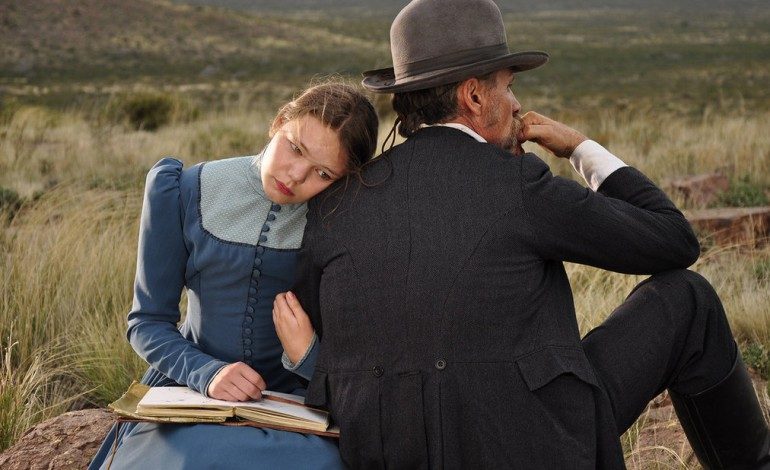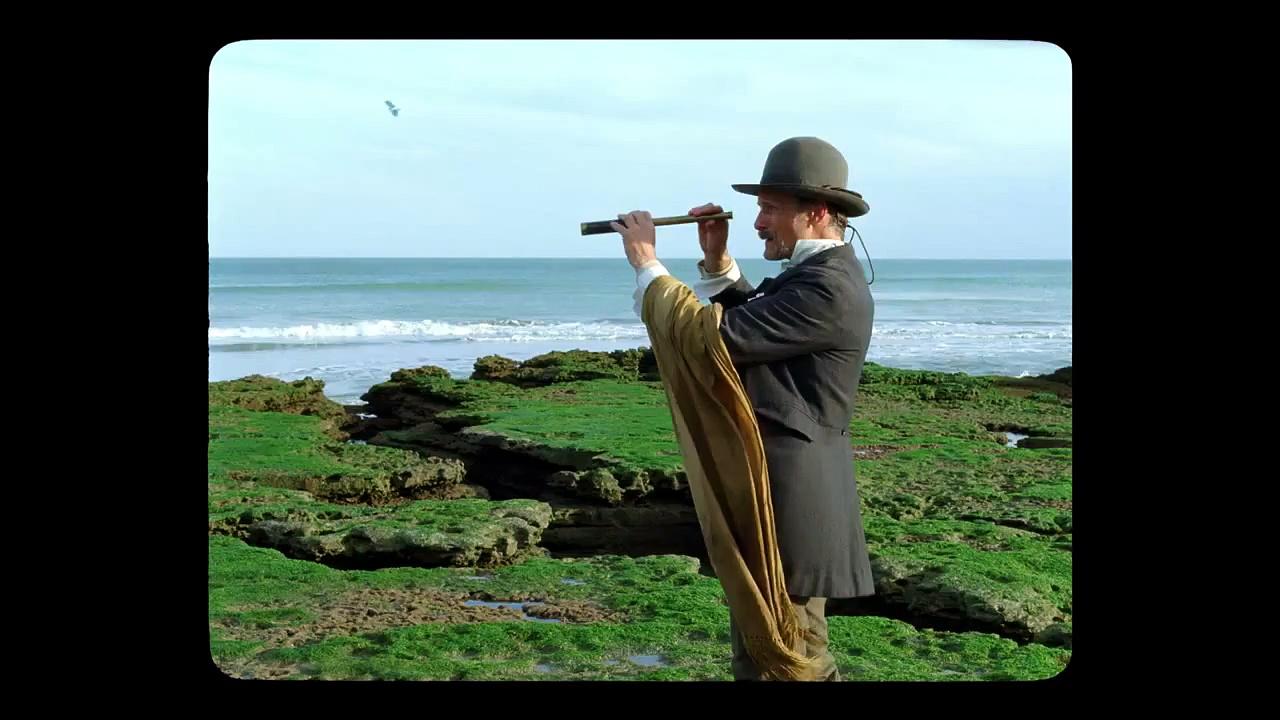

Discussing Lisandro Alonso’s Jauja (Land of Plenty) is like attempting to remember a dream just after waking. Working for the first time with a professional cast and a co-writer, Jauja is definitely the director’s most ambitious film to date, but still remains unmistakably his. It’s a difficult film, and it’s doubtful that anyone who wasn’t a fan of his earlier work will find much to grab onto here, but for those who are willing, Jauja offers deep and murky depths to explore.
The film opens on the coast of Patagonia in the 1880’s, towards the end of the Conquest of the Desert, an Argentinean crusade to establish dominance over Patagonia and force out the indigenous. Viggo Mortensen (Lord of the Rings) stars as Gunner Dinesen, a Danish engineer charged with surveying the land to be settled following the genocide. With him is his 15-year-old daughter Ingeborg (Viilbjork Malling Agger), a young girl more interested in the affections of a young soldier, Corto, than with the haunting beauty of the landscape. One night, Ingeborg and Corto elope under the cover of darkness, leaving Dinesen to give chase.
It can be argued that Jauja, like all of Alonso’s films, is thin on plot. The search for the taken woman is a familiar trope within the western genre, and is in fact reminiscent of Alonso’s second film, Los Muertos, which also centered around a father’s journey to be reunited with his daughter; however, Jauja is no simple western, and while the narrative is sparse, that should not be mistaken for a lack of complexity. Dinesen hunts for his daughter through the beautiful and treacherous landscape, occasionally crossing the path of Zuluaga, an infamous soldier gone mad, echoing shades of Colonel Kurtz of Apocalypse Now. But despite a few brief, albeit starkly violent, encounters, the true battle of Jauja is an existential one.
That Jauja is profoundly esoteric is less of an argument and more of a fact. The script, co-written by the novelist Fabian Casas, invites a great many questions and answers precious few. Yet there is always a sense of purpose. The film takes great care in what it chooses to show us, generating deep thematic consequences out of minutia. Dinesen’s donning of his uniform and saber, which sticks in its scabbard from lack of use, is particularly insightful. Dinesen is a man who fashions himself a warrior, but is unskilled, and ill prepared for the tests that lay before him. Jauja is a film with thematic and political resonance that is pronounced to a discerning eye, yet placed delicately enough to make one wonder if they were there in the first place.
If there’s one aesthetic choice that won’t be lost on anyone, it’s the film’s full-frame aspect ratio, accentuated by its rounded corners. Cinematographer Timo Salminen creates a world that is simultaneously vast and claustrophobic, pitting Dinesen against a landscape destined to swallow him up. Mortensen, who also produced and provided the film’s haunting score, does excellent work here. Dinesen becomes a character of immense humanity, and as his journey continues on horseback and on foot, we feel the weight of it on his body and on his soul. Alonso delights in the clumsiness of small action, be it stumbling on a rock or struggling to mount a horse. These are the tiny mechanizations that, when accumulated form horrific wars and epic journeys.
The Verdict: 4 out of 5
Jauja is bound to be a divisive film. It’s certainly not for everyone, and there will be those who find its lack of transparency infuriating. This is deep, dark, and beautiful journey that can be difficult to grapple with, especially the film’s ending, which takes the film past the murky edge of the esoteric and into borderline inscrutability. I’m still not sure whether I’d call Jauja satisfying, but my thoughts keep returning to it, which is more than I can say for most films. Journeying through the depths of Jauja can feel like sifting through fog. But perhaps, just as the journey is more valuable than the destination, it is the search for answers that holds the value, not the answers themselves.


